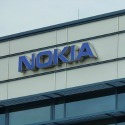
Nokia will replace Huawei in parts of BT's radio access network after expanding the terms of its contract with the UK phone incumbent.
The Finnish equipment vendor currently accounts for about one third of BT's radio access network (RAN), mainly covering less densely populated areas, with Huawei supplying the rest.
But the operator is under pressure to comply with a 35% cap on Huawei in its 5G RAN by January 2023 as a result of measures introduced this year by the Boris Johnson-led government, which regards the Chinese vendor as a security threat.
By 2028, BT and other UK operators will need to have entirely replaced Huawei in their 5G networks.
Nokia claims the latest deal will make it BT's largest network supplier, although Gabriel Brown, a principal analyst with Heavy Reading, says this reflects its arrangements with BT outside the 5G RAN.
"One area where they have done particularly well with BT is core and edge routing," he says. "You put that together with this big new RAN deal and it makes them the largest infrastructure partner."
The new contract will mean replacing some of Huawei's 5G gear as well as older generations of mobile technology supplied by the Chinese vendor.
Howard Watson, BT's chief technology officer, has previously indicated that BT needs to use the same equipment provider across 4G and 5G for performance reasons.
Nokia will also provide support for 2G, which BT has been running over the same hardware platform as 4G – a feature the industry refers to as single RAN.
"It involves swapping out a large part of the Huawei installed base," says Brown. "At this point it looks like Nokia is going to be the largest 5G RAN vendor to BT within a few years, but we don't really know what that mix of market share will be."
With flexible arrangements in the contract, Nokia's ultimate share could depend on its performance over the next couple of years, says Brown.
Ericsson still the prime candidate
BT has been weighing its options ever since anti-Huawei measures were first proposed and has also conducted RAN trials with Ericsson.
Unless BT decides to rely exclusively on Nokia, the Swedish vendor is the likeliest candidate for the other RAN contract in future.
Watson has effectively ruled out using South Korea's Samsung because it cannot provide support for 2G and 3G services.
Open RAN, a new system that promises greater interoperability between different vendors, could hold out an opportunity for smaller US software companies such as Mavenir and Parallel Wireless.
But Watson has expressed doubts open RAN will be sufficiently mature in the timeframe of the swap.
While Nokia says it will work alongside BT on developing the open RAN ecosystem, Brown does not anticipate any major open RAN activity in the near term.
"For me, that is one for the cameras," he says. "One of the things Nokia has done quite well is committing to supporting open RAN interfaces so that an operator can, in theory, take a big contract and retain some optionality. It doesn't lock them in so much."
Want to know more about 5G? Check out our dedicated 5G content channel here on Light Reading.
BT, which last year spent about £4 billion ($5.2 billion) on capital expenditure, previously warned the government that a rapid Huawei swap-out would cost billions and risk major disruption to UK phone services.
But it toned down its complaints when the authorities proposed their end-2027 deadline and said it would be able to replace Huawei for an incremental cost of about £500 million ($640 million) – the same figure it had previously attached to compliance with the 35% cap.
Its rationale was that seven years would give it sufficient time to depreciate its RAN assets.
BT had already identified Ericsson as a replacement for Huawei in the "core," the sensitive control center of the network, but Nokia's deal appears to include a few core network elements, including subscriber data management, says Brown.
"BT went with Ericsson and presented that as a single vendor selection, but this looks like some of the data management aspects will be Nokia," he says.
Landing a big 5G contract with a major European incumbent could help to restore Nokia's 5G reputation, bruised by revelations of product problems and component delays in the last year.
The deal with BT also represents the first clear sign of an operator using Nokia rather than Ericsson to replace Huawei in the 5G network.
"It is a fantastic deal for Nokia, a really big signal to the market that they are competitive," says Brown.
Paolo Pescatore, an analyst with PP Foresight, similarly hailed the contract as a "big win" for the Finnish supplier.
"It was important for BT to move quickly to avoid losing any further ground in 5G rollout," he said by email. "A massive job now awaits in stripping out Huawei and ensuring minimal disruption to customers."
Related posts:
— Iain Morris, International Editor, Light Reading
Read more about:
EuropeAbout the Author(s)
You May Also Like










